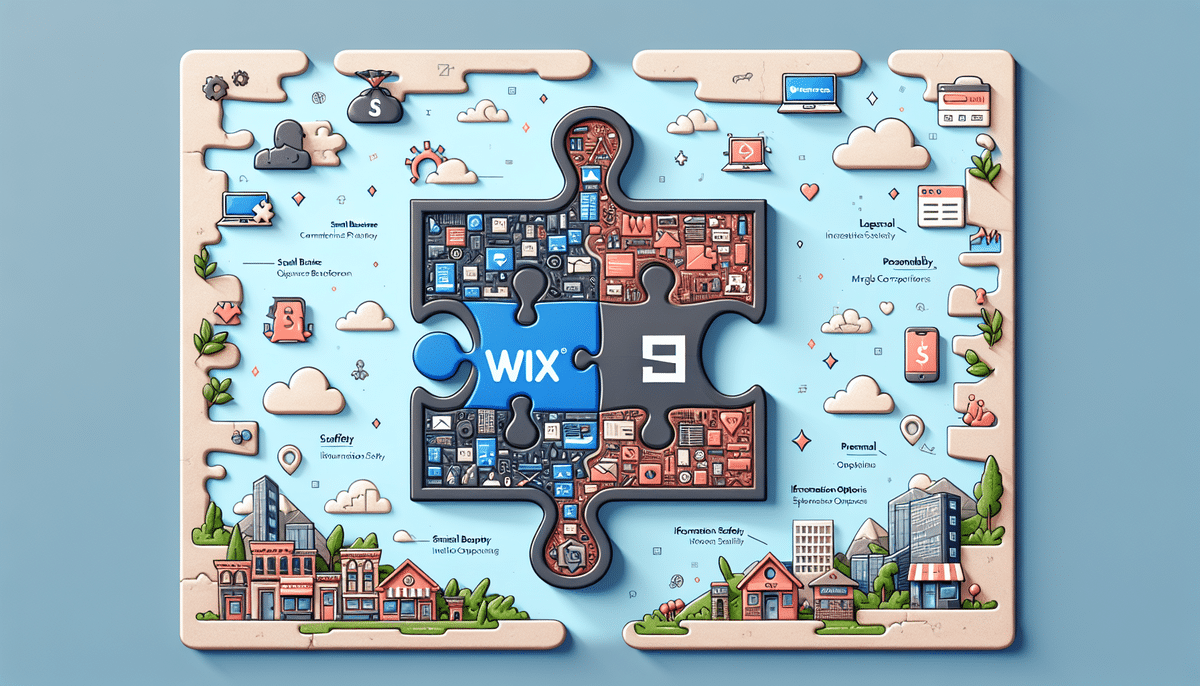Wix eCommerce vs Shopify: Comprehensive Comparison
Choosing the right eCommerce platform is crucial for the success of your online store. Two of the most popular options available are Wix eCommerce and Shopify. Both platforms offer a range of features to help businesses of all sizes sell products online, but they cater to different needs and preferences. In this article, we'll provide an in-depth comparison of Wix eCommerce and Shopify to help you make an informed decision.
Platform Overview
Wix eCommerce is a versatile website builder that has integrated robust eCommerce functionalities into its platform. It allows users to create online stores using a user-friendly drag-and-drop interface, making it ideal for beginners and small businesses.
Shopify, on the other hand, is a dedicated eCommerce platform designed specifically for online businesses. It offers a wide array of advanced features tailored for managing and scaling online stores, making it a preferred choice for medium to large businesses.
Key Differences
- Customization: Wix offers extensive design flexibility with its drag-and-drop editor, while Shopify provides deeper customization through its Liquid programming language.
- Scalability: Shopify is better suited for growing businesses with complex needs, offering advanced inventory, shipping, and tax management features.
- Ease of Use: Wix is generally easier to use for beginners, whereas Shopify may have a steeper learning curve due to its more advanced features.
Features and Functionality
Both Wix eCommerce and Shopify provide essential tools to build and manage an online store, but their feature sets differ in several key areas:
Inventory Management
- Shopify: Offers advanced inventory management tools, including multi-location inventory tracking and automated stock level updates.
- Wix eCommerce: Provides basic inventory management suitable for small to medium-sized stores.
Website Design
- Wix eCommerce: Features over 500 designer templates with extensive customization options through its intuitive editor.
- Shopify: Offers a selection of professionally designed themes, many of which are optimized for high conversion rates.
CRM Systems
- Wix eCommerce: Includes built-in Customer Relationship Management (CRM) tools for managing customer data.
- Shopify: Relies on third-party apps for advanced CRM functionalities, providing greater flexibility.
App Integrations
- Shopify: Boasts a robust app store with over 6,000 apps, enabling extensive customization and functionality enhancements.
- Wix eCommerce: Offers a growing App Market with essential integrations, though less extensive compared to Shopify.
Pros and Cons
Wix eCommerce
Advantages:
- Intuitive drag-and-drop interface, ideal for beginners.
- Wide variety of customizable templates and design options.
- Affordable pricing plans with a free option available.
- Built-in SEO tools to enhance website visibility.
Disadvantages:
- Limited scalability for larger businesses with extensive product ranges.
- Fewer advanced eCommerce features compared to Shopify.
- Design customization may require learning the platform's specific tools.
Shopify
Advantages:
- Comprehensive eCommerce features tailored for growth and scalability.
- Highly customizable through Liquid and a vast app ecosystem.
- Robust inventory and order management tools.
- Advanced marketing and SEO capabilities.
Disadvantages:
- Higher cost, especially when adding third-party apps.
- Steeper learning curve for beginners.
- Transaction fees unless using Shopify Payments.
Pricing Comparison
Understanding the pricing structures of both platforms is essential to determine which fits your budget and business needs:
- Wix eCommerce: Offers a free plan with basic features, while premium plans start at around $23 per month, providing additional eCommerce functionalities.
- Shopify: Plans start at $39 per month, with more advanced options reaching up to $399 per month for large businesses.
Choose Wix if you're on a tighter budget or just starting out. Opt for Shopify if you require more advanced features and scalability to support business growth.
User Experience and Support
Wix eCommerce
- User-friendly interface with drag-and-drop customization.
- Extensive help center with tutorials and guides.
- 24/7 support via email and phone.
Shopify
- Comprehensive dashboard with powerful management tools.
- 24/7 support through phone, email, and live chat.
- Active community forums and a wealth of online resources.
Both platforms offer reliable customer support, but Shopify's active community and extensive resources can be particularly beneficial for complex inquiries.
Marketing and SEO
Effective marketing and SEO are vital for driving traffic and sales. Here's how Wix eCommerce and Shopify stack up:
- Wix eCommerce: Provides user-friendly SEO tools, including customizable meta tags, alt text, and clean URL structures. Its design flexibility allows for SEO-friendly layouts.
- Shopify: Offers advanced SEO features like automated sitemap generation, customizable title tags, and rich snippets integration. Additionally, Shopify's speed and reliability contribute positively to SEO rankings.
For businesses focused on comprehensive marketing strategies and advanced SEO, Shopify may offer more robust tools. However, Wix provides sufficient capabilities for smaller businesses and beginners.
Best for Different Business Sizes
Small Businesses and Startups
- Wix eCommerce is an excellent choice due to its affordability, ease of use, and sufficient features to get started quickly.
- Ideal for businesses with a limited product range and simpler operational needs.
Medium to Large Businesses
- Shopify is better suited for businesses aiming to scale, offering advanced features, extensive integrations, and robust support for large inventories and multiple sales channels.
- Provides the tools necessary to manage complex operations and drive significant growth.
Case Studies and Performance
Various case studies highlight the performance differences between businesses using Wix eCommerce and Shopify:
- Shopify: Companies like Heinz and Kylie Cosmetics have leveraged Shopify's robust features to achieve significant sales growth and operational efficiency.
- Wix eCommerce: Small to medium-sized businesses such as Local Boutiques have successfully used Wix to establish their online presence with ease and cost-effectiveness.
Overall, Shopify tends to perform better for businesses focused on scaling and complex operations, while Wix excels for businesses prioritizing ease of use and affordability.
Conclusion: Which Platform Should You Choose?
Choosing between Wix eCommerce and Shopify ultimately depends on your specific business needs, budget, and growth plans:
- Wix eCommerce: Best suited for small businesses and startups looking for an affordable, easy-to-use platform with sufficient features to establish an online presence.
- Shopify: Ideal for medium to large businesses seeking a scalable, feature-rich platform with advanced customization and robust support to drive growth and manage complex operations.
Evaluate your current requirements and future aspirations to select the platform that aligns best with your business goals.






















